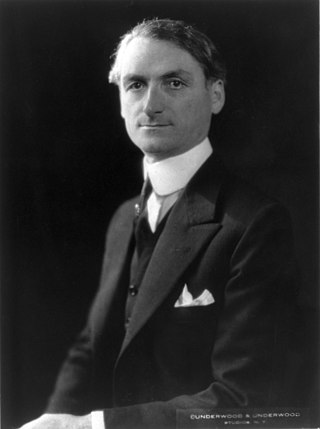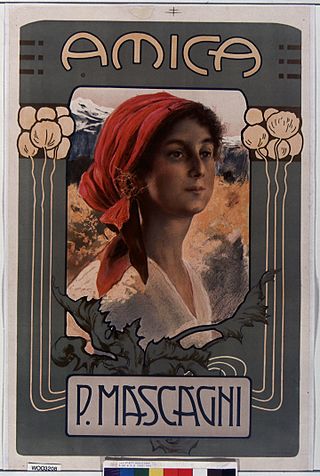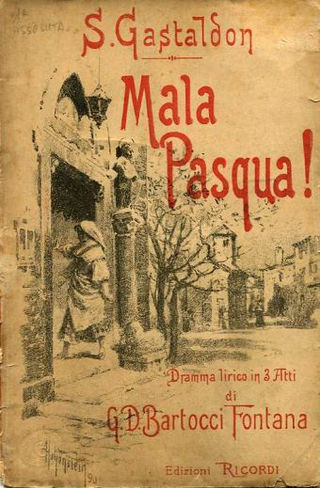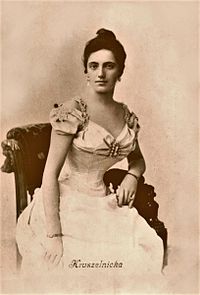
Francesco Cilea was an Italian composer. Today he is particularly known for his operas L'arlesiana and Adriana Lecouvreur.

Adriana Lecouvreur is an opera in four acts by Francesco Cilea to an Italian libretto by Arturo Colautti, based on the 1849 play Adrienne Lecouvreur by Eugène Scribe and Ernest Legouvé. It was first performed on 6 November 1902 at the Teatro Lirico in Milan.

La leggenda di Sakùntala is a three-act opera by Franco Alfano, who wrote his own libretto, basing his work on Kālidāsa's 5th-century BC drama Shakuntala.

L'incantesimo is a short opera in one act by Italian composer Italo Montemezzi. Its libretto was written by playwright Sem Benelli who had previously collaborated with the composer on his most famous opera, L'amore dei tre re. Benelli finished the text in 1933, and Montemezzi started work on the score, but the composer's unpleasant relationship with Mussolini's government made Italy inconducive to creative work. Montemezzi resumed work on L'incantesimo during the summer of 1943 in Beverly Hills, his home during a 10-year sojourn in the United States. Upon completion of the score, he offered it to the NBC Symphony, professing admiration for their orchestra.

L'arlesiana is an opera in three acts by Francesco Cilea to an Italian libretto by Leopoldo Marenco. It was originally written in four acts, and was first performed on 27 November 1897 at the Teatro Lirico in Milan. It was revised as a three-act opera in 1898, and a prelude was added in 1937.
Isabeau is a leggenda drammatica or opera in three parts by Pietro Mascagni, 1911, from an Italian libretto by Luigi Illica. Mascagni conducted its first performance on 2 June 1911 at the Teatro Coliseo, Buenos Aires.

Zazà is an opera by Ruggero Leoncavallo, with a libretto by the composer, which draws on the same material as the French play Zaza (1898). The story concerns the French music hall singer, Zazà, and her affair and subsequent decision to leave her lover, Milio, when she discovers that he is married. The music is influenced by the French music halls where Leoncavallo had spent his early years as a composer.

La farsa amorosa is an opera in three acts by Italian composer Riccardo Zandonai.

Amica is an opera in two acts by Pietro Mascagni, originally composed to a libretto by Paul Bérel. The only opera by Mascagni with a French libretto, it was an immediate success with both the audience and the critics on its opening night at the Théâtre du Casino in Monte-Carlo on 16 March 1905. Mascagni himself conducted the performance. The opera had its Italian premiere on 13 May 1905 at the Teatro Costanzi in Rome.

Cristoforo Colombo is an opera in four acts and an epilogue by Alberto Franchetti to an Italian libretto by Luigi Illica. It was written in 1892 to commemorate the 400th anniversary of Christopher Columbus' arrival in America.
Tomaso Benvenuti was a nineteenth-century Italian composer of opera. He was born in Cavarzere in the Veneto and died in Rome at the age of 68.
Pinotta is an idillio or opera in 2 acts by Pietro Mascagni from an Italian libretto by Giovanni Targioni-Tozzetti. The opera received its first performance on 23 March 1932 at the Teatro del Casinò in San Remo.

La cena delle beffe is an opera in four acts composed by Umberto Giordano to an Italian libretto by Sem Benelli adapted from his 1909 play of the same name. The opera premiered on 20 December 1924 at La Scala. Milan. The story, set in Florence at the time of Lorenzo de' Medici, recounts the rivalry between Giannetto Malespini and Neri Chiaramantesi for the affections of the beautiful Ginevra and Giannetto's thirst for revenge over a cruel joke played on him by Neri and his brother Gabriello. Giannetto's revenge "joke" ultimately leads Neri to murder both Ginevra and his own brother. The opera ends with Neri's descent into madness.

Teatro Grattacielo is a professional opera company based in New York City specializing in concert performances of rarely heard verismo operas. The company's past performances have included the North American premieres of Mascagni's Il piccolo Marat and Riccardo Zandonai's I cavalieri di Ekebù and La farsa amorosa. Its name means "Skyscraper Theatre" in Italian, a reference not only to the New York skyline but also to the Teatro Grattacielo in Genoa, a cinema which was the city's temporary opera house while the Teatro Carlo Felice was rebuilt after extensive damage in World War II.

Mala Pasqua! is an opera in three acts composed by Stanislao Gastaldon to a libretto by Giovanni Domenico Bartocci-Fontana. The libretto is based on Giovanni Verga's play, Cavalleria rusticana which Verga had adapted from his short story of the same name. Mala Pasqua! premiered on 9 April 1890 at the Teatro Costanzi in Rome, six weeks before Pietro Mascagni's opera Cavalleria rusticana which was also based on Verga's play. Bartocci-Fontana's libretto adds some elements that were not in Verga's original and expands on others. The name of the Santuzza character was also changed to Carmela, but the basic plot and setting remain the same. Its title refers to the curse which Carmela places on Turiddu, the lover who had spurned her: "Mala Pasqua a te!". Following its Rome premiere, Mala Pasqua! had a few more performances in Perugia and Lisbon, but it was completely eclipsed by the phenomenal success of Mascagni's opera. After the 1891 Lisbon run it was not heard again until 2010 when it was given a semi-staged performance in Agrigento, Sicily.

Sì is an operetta in three acts composed by Pietro Mascagni to a libretto by Carlo Lombardo with verses by Arturo Franci. The libretto is based on Lombardo's operetta La duchessa del Bal Tabarin and Felix Dörmann's libretto for Majestät Mimi set by Bruno Granichstaedten in 1911. Mascagni's only venture into operetta, it premiered on 13 December 1919 at the Teatro Quirino in Rome. The operetta takes its name from its central character, Sì, an actress at the Folies Bergère, so called because she could never say no.

I Mori di Valenza is an opera in four acts composed by Amilcare Ponchielli to a libretto by Antonio Ghislanzoni. Ponchielli began composing the work in 1874, but at the time of his death in 1886, only the piano score for the first three acts and part of the fourth had been completed. The opera was later revised by Ponchielli's son Annibale and the orchestration and fourth act were completed by Arturo Cadore. It premiered on 17 March 1914 at the Théâtre du Casino in Monaco and ran for three performances.

Mala vita is an opera in three acts composed by Umberto Giordano to a libretto by Nicola Daspuro adapted from Salvatore Di Giacomo and Goffredo Cognetti's verismo play of the same name. Giordano's first full-length opera, Mala vita premiered on 21 February 1892 at the Teatro Argentina. It was subsequently performed in Naples, Vienna, Berlin and Milan, and various Italian cities over the next two years. In 1897 a considerably re-worked and revised version under the title Il voto premiered in Milan. Within a few years, both versions had disappeared from the repertoire. Amongst its rare modern revivals was the 2002 performance at the Teatro Umberto Giordano in Foggia which was recorded live and released on the Bongiovanni label.

Regina Diaz is an opera in two acts composed by Umberto Giordano to a libretto by Giovanni Targioni-Tozzetti and Guido Menasci. It premiered on 5 March 1894 at the Teatro Mercadante in Naples. The libretto is based on Lockroy's and Edmond Badon's Un duel sous le cardinal de Richelieu, which was also the source of Donizetti's 1843 opera Maria di Rohan, although the setting for Giordano's version was moved from 17th-century Paris to 18th-century Naples. The opera was a failure at its premiere and withdrawn after the second performance. Giordano's patron and publisher, Edoardo Sonzogno, blamed the failure on the poor libretto. Giordano blamed it on Sonzogno's interference in the production.
Mademoiselle de Belle-Isle is a 1905 opera by Spyridon Samaras to a French-language libretto by Paul Milliet based on the 1839 play by Alexandre Dumas. The opera was however premiered in Italian at Genoa with a new Italian text by Amintore Galli.
















